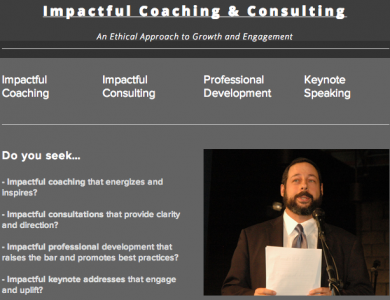
NLE Resources invites rabbis and educators from around the world to contribute guest posts. we have the fortune of presenting the first of five new blogs from Rabbi Naphtali Hoff. Rabbi Naphtali Hoff, M.Ed., is President of Impactful Coaching and Consulting, which provides coaching, consulting and professional development services to schools and other non-profit organizations. He is an accomplished educator and administrator and sought after lecturer with over fifteen years of experience in the field. Rabbi Hoff holds two Master’s degrees in education and is a doctoral student in human and organizational psychology, which examines successful individual or organizational change and development. More about Rabbi Hoff can be found on his website, ImpactfulCoaching.com.
For most of us in the world of education, Elul represents a time of renewal. We return to work refreshed and recharged, ready to begin a new period of engagement and inspiration. Those in leadership positions see this time as a new opportunity to move their organizations forward and advance their lofty mission. They relish the prospect of introducing positive change that will result in a year of optimal success, for themselves and the people whom they service.
Understandably, however, not all aspects of leadership are so widely embraced by those at the top. Often, leaders are asked to ensure the organization’s fiscal solvency and raise necessary funds to provide meaningful programming and staff development. They may also be tasked to manage many of the technical responsibilities necessary for organizational function. But the hardest and least desirable role for some in leadership capacities is undoubtedly the actual task of leading others.
Visioning and planning are fun. Focused, goal-oriented leaders get wide-eyed as they prepare their annual list of noble objectives. But it’s not enough to dream. Leaders have to be able to articulate their vision and inspire others to embrace it as well. It is their responsibility to bring their colleagues along for the ride and encourage them to make their own contributions to the cause. They must set the standard for effort and commitment and hold their employees accountable to high levels of performance. Fundamentally, leaders need to ensure that they have the right people “on the bus” (to paraphrase Jim Collins, author of From Good to Great) and take the necessary action when they don’t.
This blueprint for successful, results-oriented leadership is far from new. It was displayed over 3,300 years ago by Moshe Rabbeinu, perhaps the greatest leader ever to live.
Elul 2448 was a time of particular renewal; the circumstances that led to that year’s restoration were enough to dishearten even the strongest leader. On the first day of the month, Moshe ascended Har Sinai to carve out a second set of Tablets. This climb followed an intense period of repentance, designed to restore G-d’s grace following the sin of the golden calf and the shattering of the first Tablets. Because of Moshe’s resounding success in currying divine favor, Elul was established as a period of introspection and atonement for perpetuity.
The following blog posts will seek to identify core instances and characteristics of Moshe’s leadership during this challenging period. We will examine the behaviors that helped him to restore divine favor while also making meaningful applications to contemporary organizational leadership. At this time of year in particular, we must embrace our capacity as leaders to influence positive change. I look forward to learning these lessons with you in our quest to enhance our leadership capacity and impact.



















